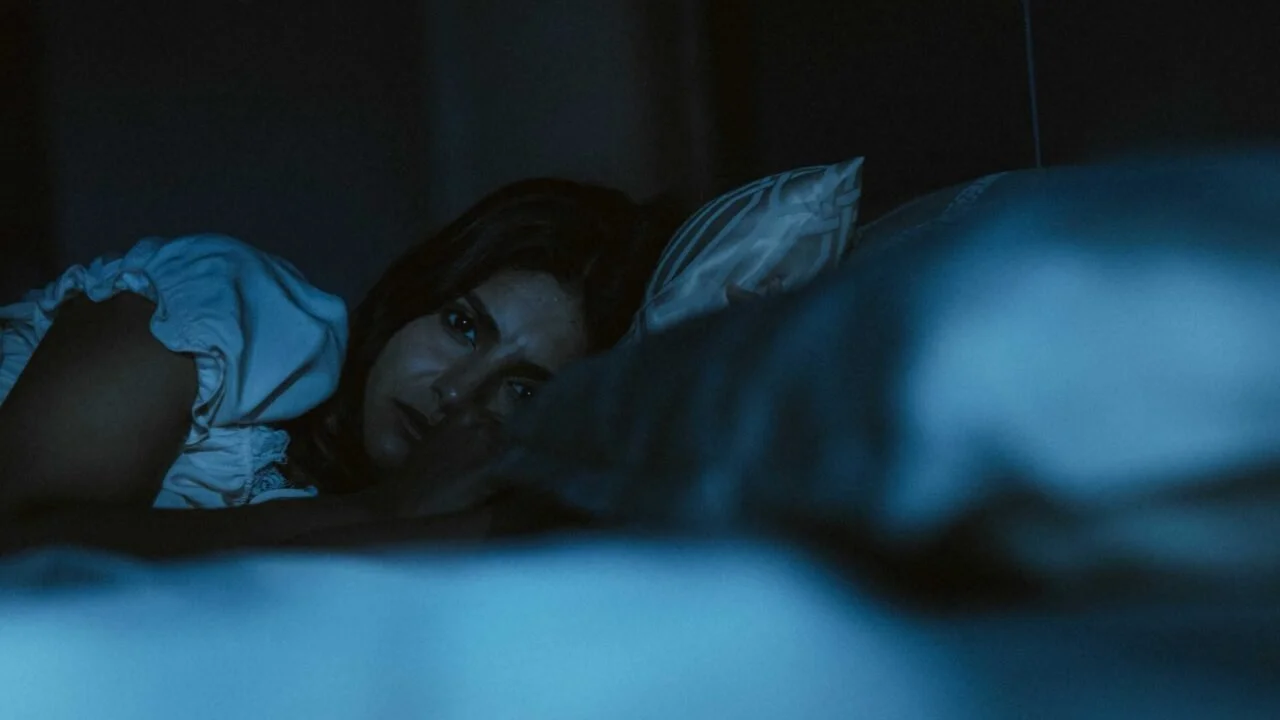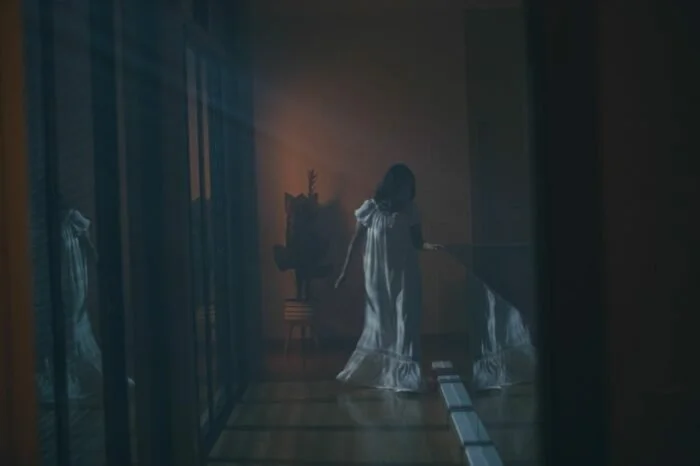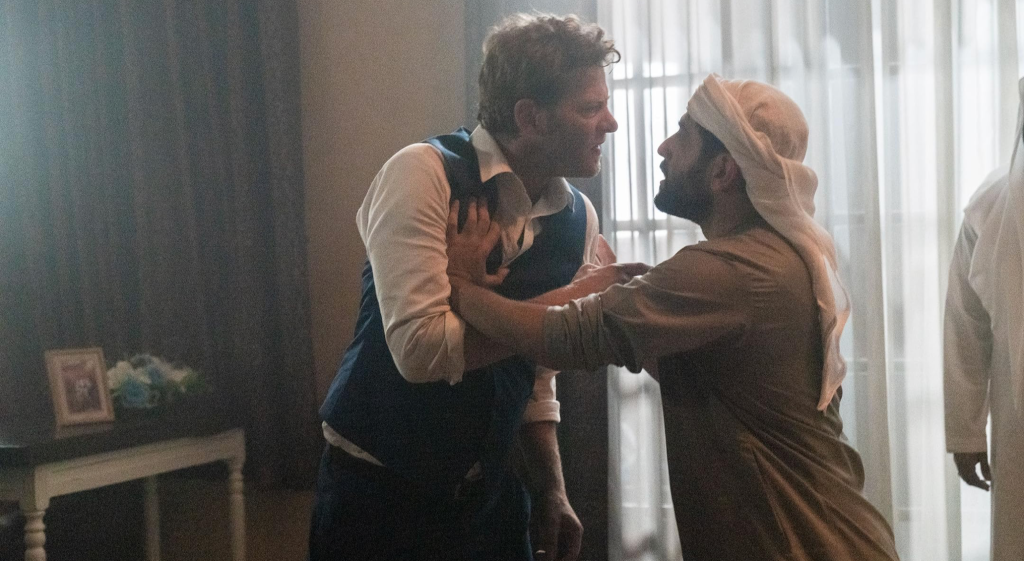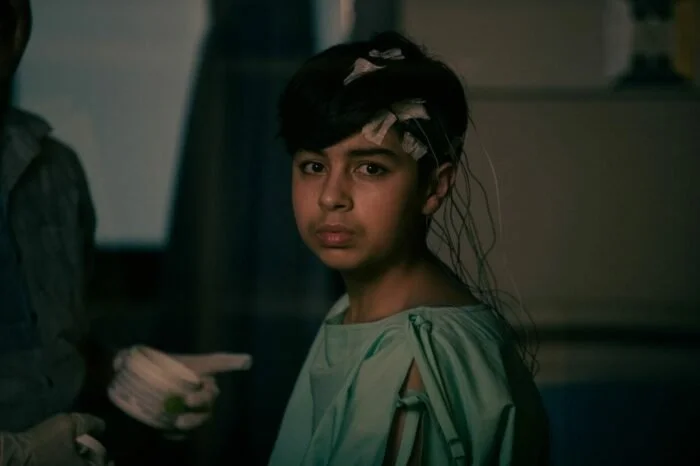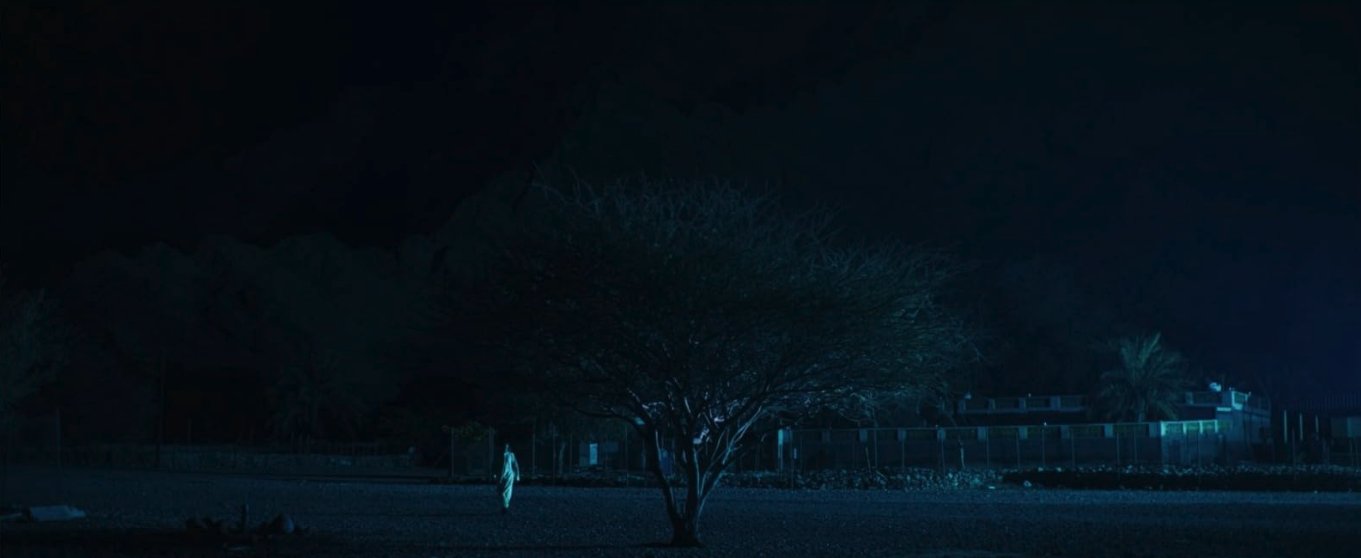In Three, writer-director Nayla Al Khaja delivers a chilling and richly layered debut that boldly reframes the exorcism subgenre through an Islamic and deeply personal lens. Set across beautifully textured environments in Thailand and the UAE, the film tells the story of a desperate mother, Maryam (Faten Ahmed), who turns to an unlikely Western doctor (Jefferson Hall) to save her son Ahmed (Saud Alzarooni), whose deteriorating mental health may stem from something far more ancient and sinister.
If you’re expecting the typical tropes of Middle Eastern horror or stylized dance numbers sprinkled between scares, Three will subvert those expectations entirely, and for the better. This is not a flashy, jump-scare-laden exorcism tale; it’s an atmospheric, slow-burn descent into faith, tradition, and the emotional toll of motherhood.
Jefferson Hall, known to genre fans from Halloween and House of the Dragon, is perfectly cast as Dr. Mark Holly. His brooding, skeptical presence brings to mind Father Karras from The Exorcist, a comparison the film wears with pride. His journey from scientific doubt to spiritual reckoning mirrors the audience’s own grappling with the reality of the supernatural. Hall brings gravitas and nuance to the role, but it’s young Saud Alzarooni who anchors the film with an astonishingly raw performance that earned him the Best Actor award at the 2024 Gulf Coast Film & Video Festival.
Faten Ahmed’s portrayal of Maryam is equally powerful, capturing the anguish of a mother willing to abandon logic for love. Her scenes with Alzarooni are emotionally wrenching, grounding the film’s horror in an unsettling realism.
From a technical perspective, Three is virtually flawless. Mik Allen’s cinematography, recognized at multiple festivals, is moody and masterful, using shadow and light to evoke an ever-present sense of dread. The production design is steeped in authenticity, and it’s evident that great care was taken in crafting the film’s intricate, immersive environments. Nayla’s knowledge of Gulf dialects and cultural nuance is embedded in every frame, giving the film both emotional and cultural depth.
The sound design and score are also standouts, utilizing Dolby Atmos to great effect. The haunting music and expertly balanced mix contribute significantly to the film’s unsettling ambiance, especially during the climactic exorcism sequence, which manages to be both terrifying and transcendent.
It’s true that Three treads familiar ground thematically. Echoes of The Exorcist are hard to ignore, and there’s a mid-film slump where the repetition of ritual and resistance begins to feel a bit tedious, though this is a flaw common to many films in this subgenre. But the emotional payoff and a clever twist in the final act more than compensate.
What sets Three apart is its authenticity. Al Khaja, the first female film director from the UAE, brings firsthand experience and cultural insight to a genre often dominated by Western perspectives. Her intention to depict Islamic exorcism rituals with accuracy and respect is clear, and she succeeds. Rather than sensationalize or vilify religious practices, she examines their place in a world where mental illness is still deeply stigmatized, especially among children.
With Three, Nayla Al Khaja announces herself as a bold new voice in global horror cinema. The film has earned numerous awards and nominations across the festival circuit, including Best Debut Film at the 2025 Strasbourg International Film Festival and Best Feature Film at the 2024 HorrOrigins Festival. And rightly so. This is a beautifully crafted, emotionally potent, and deeply unsettling film that deserves a wide audience.
Jessie Hobson

